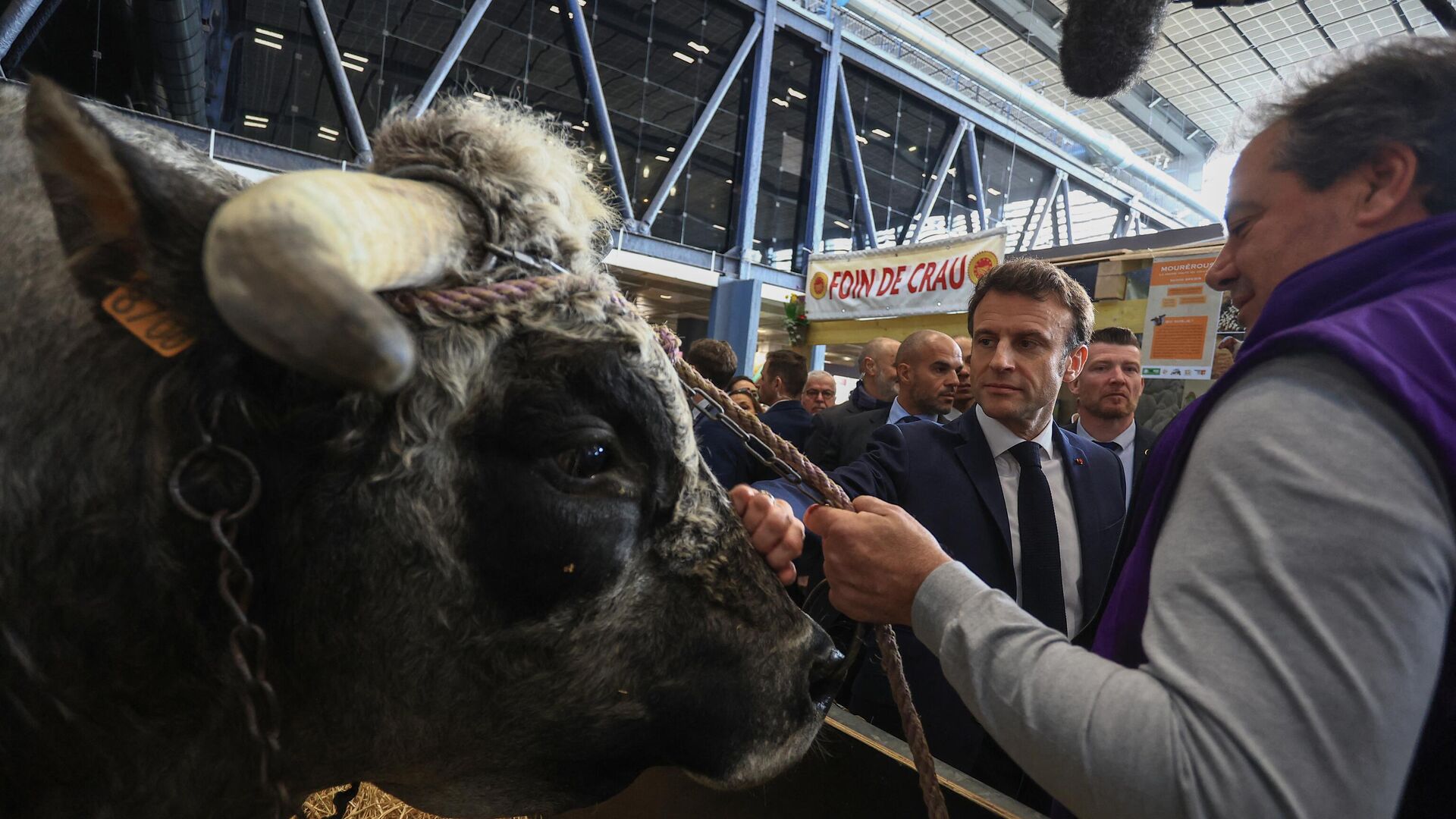https://en.sputniknews.africa/20230924/viral-disease-algeria-suspends-french-beef-imports-1062320896.html
Viral Disease: Algeria Suspends French Beef Imports
Viral Disease: Algeria Suspends French Beef Imports
Sputnik Africa
Europe has recently identified cases of epizootic hemorrhagic disease (EHD), which is transmitted by a midge that bites ruminants. Since 2008, it has been... 24.09.2023, Sputnik Africa
2023-09-24T17:32+0200
2023-09-24T17:32+0200
2023-09-27T14:46+0200
france
algeria
international
europe
health
health ministry
healthcare
north africa
import
https://cdn1.img.sputniknews.africa/img/07e7/09/18/1062322735_0:46:3072:1774_1920x0_80_0_0_96ca8ec34607cb90ac57da3de0275ccc.jpg
Algeria has suspended the purchase of French cows as an epidemic reaches some herds, a statement from the Ministry of Agriculture explained. Cases of epizootic hemorrhagic disease (EHD) have been detected in Europe, first in the Iberian Peninsula and now in France.To avoid contagion, the purchase of live calves and cows from France is now prohibited. This is a "preventive" and "urgent" measure, taken after advice from the national veterinary authority, specified the ministry.France itself has taken similar measures, banning the export of live cattle for several farms in the southwest.Mosquito BitesEpizootic hemorrhagic disease (EHD) was discovered in 1995 in the United States. The disease is transmitted by a midge that bites ruminants but also deer. The virus circulates through the bloodstream and causes fever, weight loss, mouth lesions and difficulty breathing. However, the effects on livestock may vary.No vaccine currently exists against EHD. Affected specimens should be removed from the herd and treated with painkillers, anti-inflammatories or antibiotics. However, the disease is not transmissible to humans.Algeria has been facing a decline in its cattle and sheep herds for several months. Infectious diseases and drought that reduce the extent of pastures are the main causes. In May, the government even worked on a bill criminalizing the slaughtering of certain female animals.
https://en.sputniknews.africa/20221201/1058498507.html
france
algeria
europe
north africa
Sputnik Africa
feedback@sputniknews.com
+74956456601
MIA „Rossiya Segodnya“
2023
Samantha Arias
https://cdn1.img.sputniknews.africa/img/07e7/0a/18/1063050346_115:0:834:719_100x100_80_0_0_1682778780537fd5aa8dd2536a012c1b.jpg
Samantha Arias
https://cdn1.img.sputniknews.africa/img/07e7/0a/18/1063050346_115:0:834:719_100x100_80_0_0_1682778780537fd5aa8dd2536a012c1b.jpg
News
en_EN
Sputnik Africa
feedback@sputniknews.com
+74956456601
MIA „Rossiya Segodnya“
Sputnik Africa
feedback@sputniknews.com
+74956456601
MIA „Rossiya Segodnya“
Samantha Arias
https://cdn1.img.sputniknews.africa/img/07e7/0a/18/1063050346_115:0:834:719_100x100_80_0_0_1682778780537fd5aa8dd2536a012c1b.jpg
france, algeria, international, europe, health, health ministry, healthcare, north africa, import
france, algeria, international, europe, health, health ministry, healthcare, north africa, import
Viral Disease: Algeria Suspends French Beef Imports
17:32 24.09.2023 (Updated: 14:46 27.09.2023) Samantha Arias
Producer / Podcast host
Europe has recently identified cases of epizootic hemorrhagic disease (EHD), which is transmitted by a midge that bites ruminants. Since 2008, it has been included in the list of notifiable diseases of the World Organization for Animal Health (WOAH). At the moment, there is no vaccine against it.
Algeria has suspended the purchase of French cows as an epidemic reaches some herds, a statement from the Ministry of Agriculture explained. Cases of epizootic hemorrhagic disease (EHD) have been detected in Europe, first in the Iberian Peninsula and now in France.
To avoid contagion, the purchase of live calves and cows from France is now prohibited. This is a "preventive" and "urgent" measure, taken after advice from the national veterinary authority, specified the ministry.
France itself has taken similar measures,
banning the export of live cattle for several farms in the southwest.
Epizootic hemorrhagic disease (EHD) was discovered in 1995 in the United States. The disease is transmitted by a midge that bites ruminants but also deer. The virus circulates through the bloodstream and causes fever, weight loss, mouth lesions and difficulty breathing. However, the effects on livestock may vary.
"Some do not react or have mild forms, like sheep, others have more serious forms which can lead to death," explained Christophe Brard, president of the National Society of Veterinary Technical Groups, as cited by media.
No vaccine currently exists against EHD. Affected specimens should be removed from the herd and treated with painkillers, anti-inflammatories or
antibiotics. However, the disease is not transmissible to humans.
Algeria has been facing a decline in its cattle and sheep herds for several months. Infectious
diseases and drought that reduce the extent of pastures are the main causes. In May, the government even worked on a bill criminalizing the slaughtering of certain female animals.



